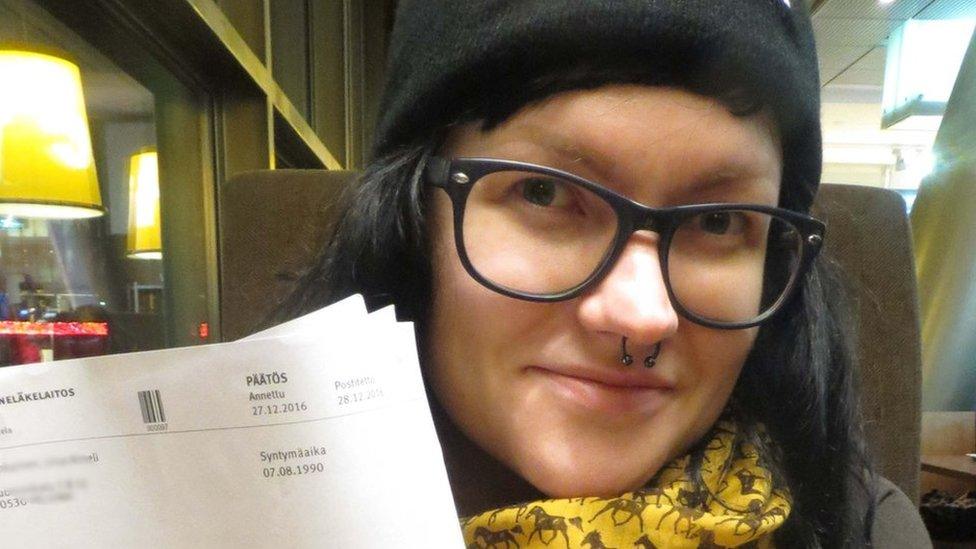Basic income pilot considered in Glasgow
- Published
Glasgow could be the first city in the UK to pilot a basic universal income for every citizen.
The local council is to fund a £5,000 study to look at how the concept might work.
Models vary, but it is based on an unconditional, regular payment instead of benefits, with proponents claiming it can cut welfare bureaucracy and reduce poverty.
The idea is being piloted in countries around the world, including Finland.
The Scottish government has said it is interested in the idea but believes it will not work north of the border unless welfare and tax is fully devolved.
Glasgow City Council's executive committee has given the go-ahead to a feasibility study this spring.
Poverty issues
It will include discussions with community groups and the public sector.
The aim is to design the potential form that a pilot might take.
A document considered by the committee said: "Glasgow offers a unique and exciting opportunity to contribute to the debate.
"Glasgow is an international city with a proud history and reputation, yet also one with significant issues of poverty, inequality and health.
"The learning that could be gained from a Glasgow experimental approach to basic income, could inform the potential for the Basic Income Model to alleviate poverty and build economic and social inclusion.
Jamie Cooke, head of RSA Scotland, which is running the pilot, said: "This decision by Glasgow City Council is an important moment for basic income in Scotland, and marks a significant step forward.
"We now have the opportunity to move the basic income conversation forward and identify practical ways to run a pilot which works locally and has global resonance."
Fife Council has already agreed to a similar pilot but has not decided on the details.
- Published16 January 2017

- Published29 January 2017
